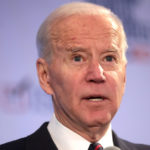Montana has become the first state to pass a law explicitly prohibiting individuals dressed in drag from reading books to children in public schools and libraries.
This move is part of a broader wave of legislation that aims to protect children across the United states.
BREAKING: Montana Governor Greg Gianforte has signed Montana HB 359, which bars minors from attending sexually oriented shows. The bill also prohibits drag queens from reading to children in schools and libraries.
Another state, another win! #GaysAgainstGroomers pic.twitter.com/FCI4d3Re2g
— Gays Against Groomers (@againstgrmrs) May 24, 2023
Similar bills have emerged in Florida and Tennessee, but they require the performances to be of a sexual nature, leaving some room for interpretation.
Montana’s bill defines the event as one where a drag “king” or drag “queen” reads children’s books to minor children, without explicitly requiring a sexual element to be present.
The bill, co-sponsored by over half of Montana’s Republican-controlled legislature, was promptly signed into law by Republican Governor Greg Gianforte.
Let's gooo! Montana just became the first state to straight-up ban drag queen story hours at libraries and public schools https://t.co/Uiwb23pMSO
— Not the Bee (@Not_the_Bee) May 24, 2023
According to Governor Gianforte’s spokesperson Kaitlin Price, he signed the bill because he believes it is highly inappropriate for young children, particularly preschoolers and those in elementary school, to be exposed to sexualized content.
Originally, the bill sought to prohibit minors from attending drag performances described as events that “excite lustful thoughts.” However, it was later amended to restrict minors from attending sexually oriented or obscene performances on public property.
Republican Representative Braxton Mitchell, the bill’s sponsor, expressed his motivation, stating that drag shows in recent years have been targeted at children.”In my humble opinion, there’s no such thing as a family-friendly drag show,” Mitchell said in April.
A toddler is encouraged to hand a cash tip to a drag queen during a sexualized performance at a “family friendly” drag show in Oceanside, CA pic.twitter.com/5YGjf5hqC2
— Libs of TikTok (@libsoftiktok) May 24, 2023
A drag queen simulates sexual acts at a “family-friendly” drag show at a bar in Dublin, California pic.twitter.com/hDqZGpQVQF
— Libs of TikTok (@libsoftiktok) November 1, 2022
“Look at all that money you just made!” Drag queen teaches a child to perform for cash tips at a “family-friendly” drag show in Palm Springs, CA pic.twitter.com/JThSO1fOeg
— Libs of TikTok (@libsoftiktok) August 2, 2022
“Those [dollars] are hers. She earned them.” Drag queen teaches a child to perform for cash tips at a “family-friendly” drag show pic.twitter.com/v3Kd0cXpJj
— Libs of TikTok (@libsoftiktok) July 8, 2022
Julie Yard, a drag performer with The Mister Sisters in Great Falls, helps organize drag reading events and states that she has never been asked to coordinate one at any public or private school.
Between 6 to 10 events are scheduled throughout the state in the coming months.
“Usually the requests for drag story hours happen a lot through the summer,” Yard said. “They typically tend to coincide with Pride celebrations.”
“For us, it’s again just doubling down and making sure that we are sending a message out there to anyone, but especially kids who are vulnerable, that there is a place for them, there is a community for them, and that there are folks out there who are interested in making sure that they are accepted and feel safe.”












